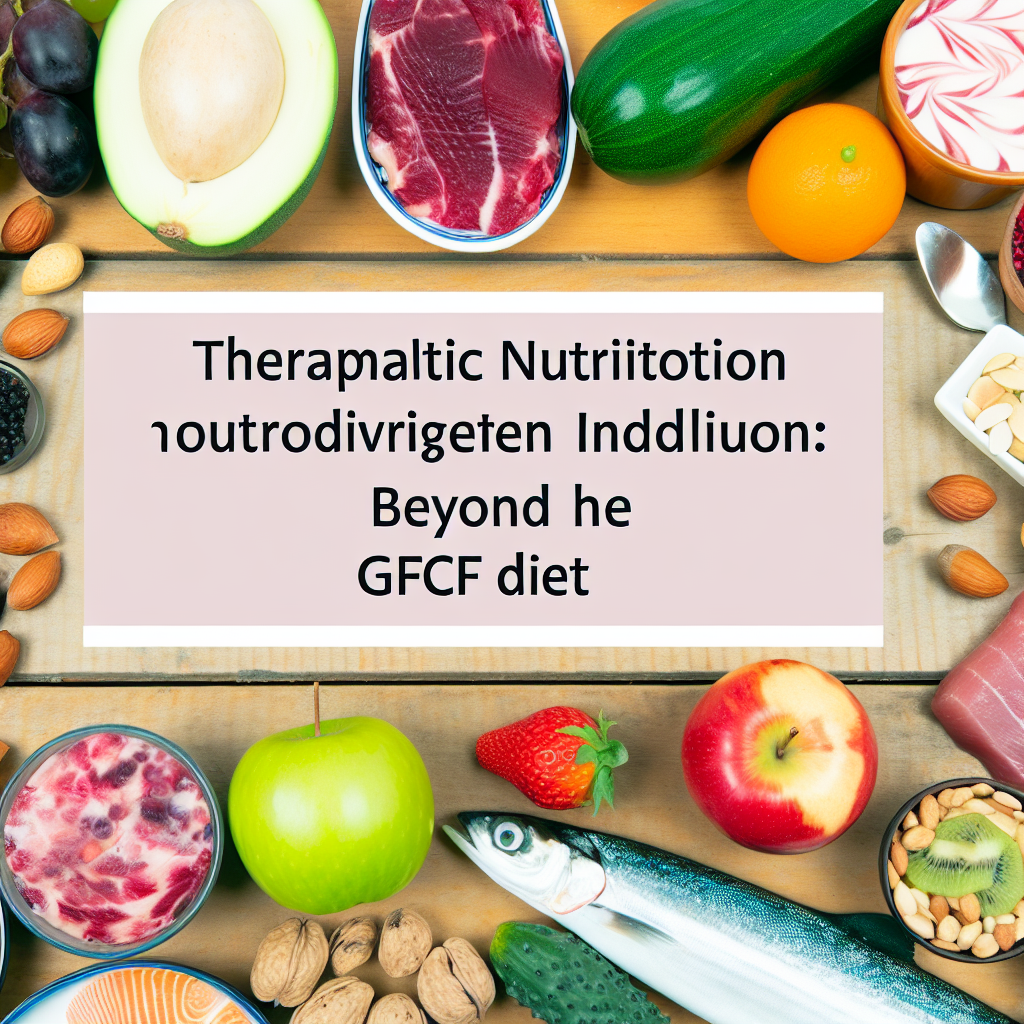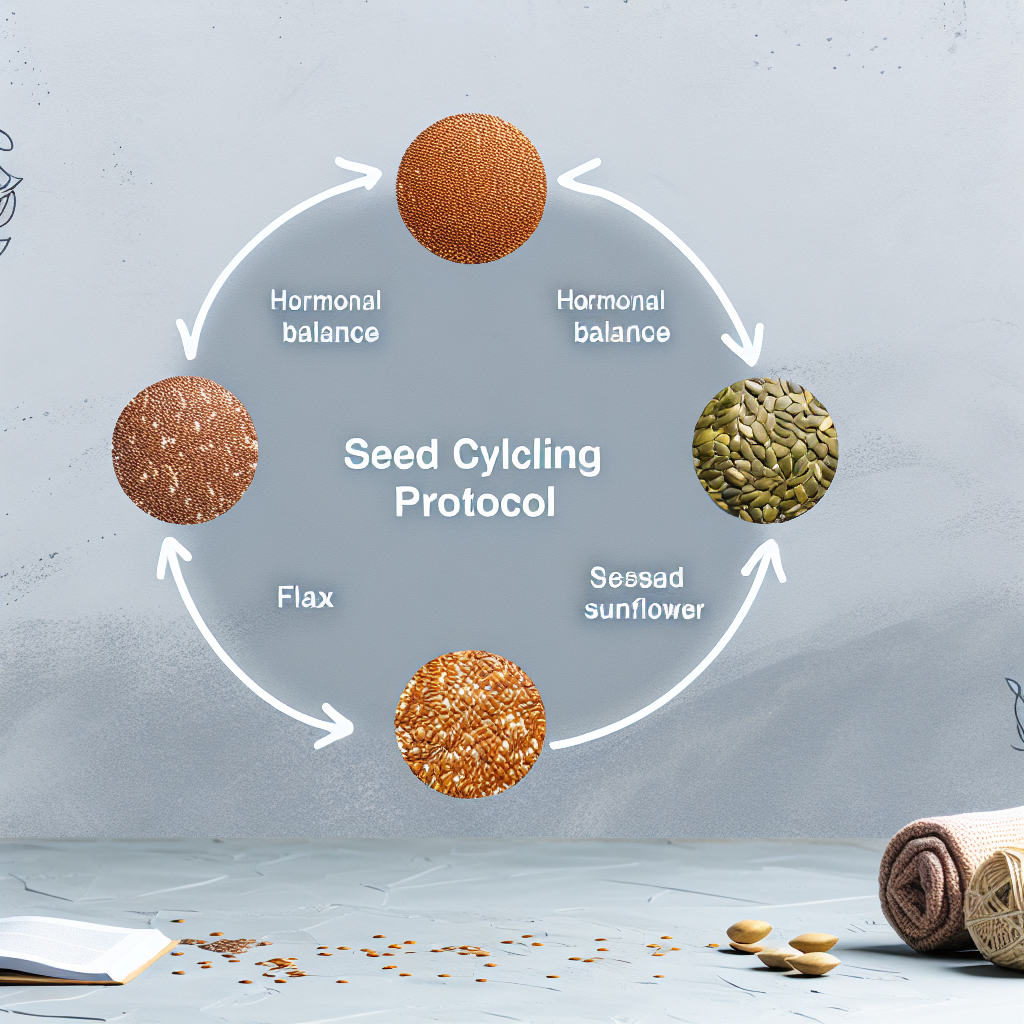Therapeutic Nutrition for Neurodivergent Individuals: Beyond the GFCF Diet
Nourishing the Unique Mind: A New Era of Nutrition for Neurodivergent Individuals
Navigating the complex world of nutrition for neurodivergent individuals, including those with autism spectrum disorder (ASD), ADHD, and sensory processing disorders, requires a blend of science, empathy, and a personalized approach. Therapies have long emphasized behavior and developmental support, but therapeutic nutrition has rapidly emerged as a viable complementary treatment. One common approach in this field is the GFCF diet, or gluten-free, casein-free diet, which many parents and caregivers have turned to with varying degrees of success. However, nutritional therapy for neurodivergence is not limited to the elimination of gluten and dairy. Diet plays a critical role in supporting neurological function, gut health, mood regulation, and behavior in neurodivergent individuals. As research continues to unfold, it becomes increasingly evident that going beyond the GFCF diet could offer even more comprehensive support.
Neurodivergence often involves unique neurological pathways that may influence how individuals process food, absorb nutrients, and manage neurotransmitter levels. For instance, imbalances in the gut-brain axis, chronic inflammation, oxidative stress, and nutritional deficiencies are frequently observed in neurodivergent individuals. Optimal nutrition can help regulate these underlying imbalances. Instead of a one-size-fits-all dietary strategy, current best practices now emphasize individualized nutrition plans designed to correct nutrient deficiencies, support detoxification, manage blood sugar levels, and nourish the microbiome.
Adding to this, more caregivers are exploring homeopathic remedies, herbal adaptogens, and nutrient-dense whole foods to create a synergistic therapeutic approach. These natural interventions not only work to reduce symptoms but also build resilience and cognitive function. Polyphenols from colorful fruits and vegetables, omega-3 fatty acids from fish and flaxseed, B vitamins, magnesium, and probiotics are just a few examples of the critical nutrients now earning the spotlight in these functional nutrition strategies.
This holistic approach considers emotional, mental, and biological health collectively, moving beyond restrictive diets and into evidence-informed nutritional therapy. As more practitioners integrate functional medicine, nutritional psychiatry, and herbal therapeutics in support of neurodivergent individuals, exciting frontiers in treatment possibilities continue to unfold—creating a more inclusive, empowering path toward holistic well-being.
Research-Backed Nutritional Protocols: What the Science Says
Many studies now shed light on how therapeutic nutrition can influence neurological development and symptom expression in neurodivergent individuals. One landmark study published in Nutrients (2017) titled “Comprehensive Nutritional and Dietary Intervention for Autism Spectrum Disorder—a Randomized, Controlled 12-Month Trial” by Adams et al. evaluated nutritional interventions including vitamin/mineral supplements, digestive enzymes, essential fatty acids, and a healthy gluten-free, casein-free, soy-free (GFCFSF) diet. The results showed significant improvements in non-verbal IQ, autism symptoms, and developmental age in the group receiving the combined treatment compared to the control group. Read the full study.
Another pivotal area of research focuses on the gut-brain axis. Neurodivergent individuals often experience gastrointestinal disruptions that may influence behavior and cognition. A 2019 review article in Microorganisms, titled “Prebiotics and Probiotics for Autism Spectrum Disorder: A Systematic Review and Meta-Analysis,” found that probiotics and prebiotics could significantly improve not only gastrointestinal symptoms but also behaviors related to ASD, suggesting a strong gut microbiome influence on the brain. Read the study.
Emerging studies also indicate the potential of antioxidant-rich diets and supplementation in managing neuroinflammation frequently found in individuals with ADHD and ASD. A 2020 study in Frontiers in Pharmacology titled “Oxidative Stress and Inflammation in Autism Spectrum Disorders: Synergized Associations and Opportunities for Intervention with Natural Products” highlights the role of bioactive compounds such as curcumin and resveratrol in reducing brain inflammation, supporting cognition and emotion regulation. Explore the research.
Further, omega-3 fatty acids, especially DHA and EPA, are widely researched for their neuroprotective properties. A 2018 review in Translational Psychiatry found a correlation between increased omega-3 intake and improved attention, social interaction, verbal development, and reduced hyperactivity in children diagnosed with neurodevelopmental disorders. See the full review.
These studies support the movement toward a dynamic model of therapeutic nutrition that integrates more than just food elimination. They underline the importance of a diverse, nutrient-dense intake that includes proven natural compounds which nourish the brain, soothe inflammation, and support healthy gut function. This science affirms that personalized nutritional strategies provide a meaningful addition to the toolkit in fostering neurodivergent individuals’ optimal development.
From Elimination Diets to Empowerment: A Holistic Nutrition Revolution
While the GFCF diet remains a foundational nutritional strategy for many neurodivergent individuals, it is just the beginning of a broader, more personalized nutritional path. Today, therapeutic nutrition goes beyond dietary restrictions, focusing instead on replenishing the body with targeted nutrients, restoring gut health, and mitigating chronic inflammation that may underlie neurological symptoms. With the support of published scientific research, evidence-based practices, and functional medicine, caregivers and healthcare providers now have more tools than ever to support individuals with neurodivergent needs through holistic, natural approaches.
By embracing therapeutic nutrition, we can move from symptomatic management to rooting out underlying imbalances, empowering neurodivergent individuals with the strength and stability needed for their unique paths. Whether through omega-3 supplementation, antioxidant-rich plants, probiotics, or targeted herbal therapies, the healing potential found in nature is both promising and deeply restorative. Making mindful, informed choices in nutrition is not just a treatment—it is a form of advocacy, honoring the diverse neurological experiences of individuals across the spectrum.
References
1. Adams, J. B., et al. (2017). Comprehensive Nutritional and Dietary Intervention for Autism Spectrum Disorder—a Randomized, Controlled 12-Month Trial. *Nutrients*. https://www.mdpi.com/2072-6643/10/3/369
2. Srikantha, P., & Mohajeri, M. H. (2019). Prebiotics and Probiotics for Autism Spectrum Disorder: A Systematic Review and Meta-Analysis. *Microorganisms*. https://www.mdpi.com/2076-2607/7/9/355
3. Bjørklund, G. et al. (2020). Oxidative Stress and Inflammation in Autism Spectrum Disorders: Synergized Associations and Opportunities for Intervention with Natural Products. *Frontiers in Pharmacology*. https://www.frontiersin.org/articles/10.3389/fphar.2020.00868/full
4. Chang, J. P-C., et al. (2018). Omega-3 Polyunsaturated Fatty Acids in Youths with Attention Deficit Hyperactivity Disorder and Autism Spectrum Disorders: A Review of Nutritional Evaluation and Supplementation. *Translational Psychiatry*. https://www.nature.com/articles/s41398-018-0130-2
Summary:
Therapeutic nutrition for neurodivergent individuals, including those with autism spectrum disorder (ASD), ADHD, and sensory processing disorders, goes beyond the GFCF diet. Research shows that personalized nutrition plans focusing on gut health, inflammation reduction, and targeted nutrient supplementation can significantly improve neurological symptoms and cognitive function. By embracing holistic, evidence-based approaches, caregivers and healthcare providers can empower neurodivergent individuals through natural, restorative therapies.

Dominic E. is a passionate filmmaker navigating the exciting intersection of art and science. By day, he delves into the complexities of the human body as a full-time medical writer, meticulously translating intricate medical concepts into accessible and engaging narratives. By night, he explores the boundless realm of cinematic storytelling, crafting narratives that evoke emotion and challenge perspectives.
Film Student and Full-time Medical Writer for ContentVendor.com




